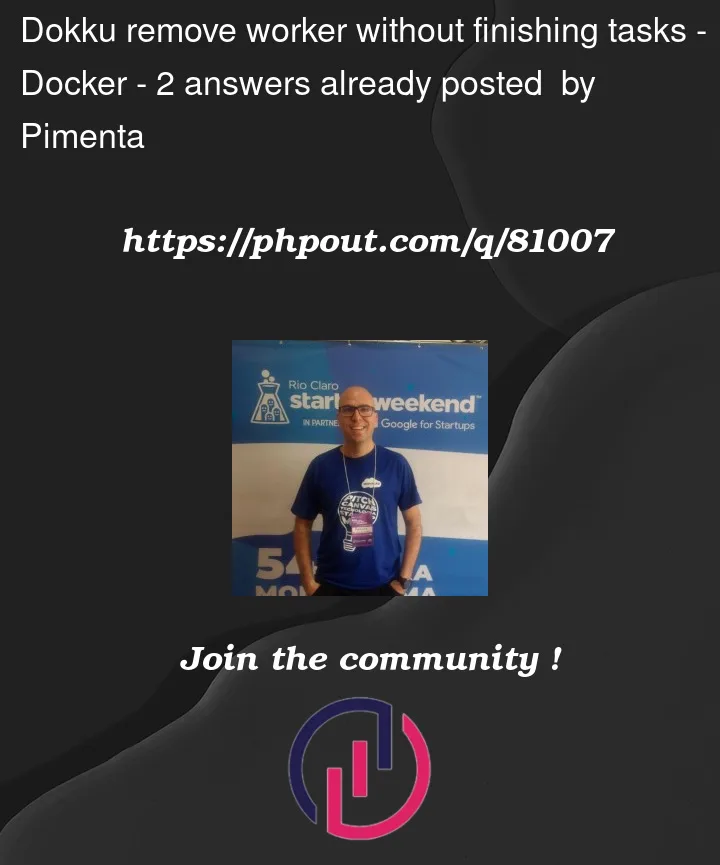I have Ruby on Rails app and after I do any deployment with Dokku, I have my old worker running the tasks normally, but when I complete the deploy, after a few seconds this worker is removed and a new one is created without finishing all the tasks that were running. Does anyone know how I get around this? Or that the worker finishes all tasks before removing, or when a worker is created after deploying, the tasks from the old worker go to the new worker? Any indication?




2
Answers
I managed to solve it with a workaround, I created a check_worker.rb file that I call in the predeploy, it silences the workers so as not to take any more tasks, and while there is a worker with tasks being executed, it does not advance with the deploy until it completes all, only after completing all the tasks it completes the deploy
app.json
check_worker.rb
Dokku’s zero-downtime deploy mechanism will wait a configurable amount of time before running
docker container stop. This will send aSIGTERMto your application, and then aSIGKILLafter a grace period.Your application code should handle
SIGTERMand gracefully stop accepting new work, finish old work, and then terminate. This is generally what background processing frameworks do by default, but you may need to configure this in yours or add the functionality if it is a custom framework you wrote.